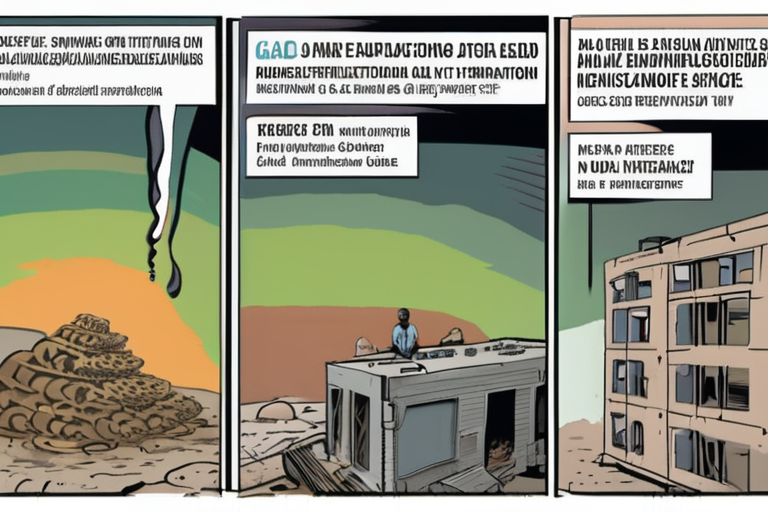DHS Collects US Citizens' DNA for Years, Raises Concerns Over Lack of Authorization
The Department of Homeland Security (DHS) has been collecting DNA from nearly 2,000 U.S. citizens between 2020 and 2024, sending the samples to the Federal Bureau of Investigation's (FBI) Combined DNA Index System (CODIS) database without congressional authorization. According to an analysis by Georgetown Law's Center on Privacy Technology, the collection included approximately 95 minors, some as young as 14, and travelers never charged with crimes.
The DHS Inspector General found in 2021 that the department lacked central oversight of DNA collection, raising concerns about the lack of accountability and transparency in this process. "This is a clear example of government overreach," said Jennifer Granick, director of civil liberties at the American Civil Liberties Union (ACLU). "Citizens have a reasonable expectation of privacy, and collecting their DNA without consent or authorization is a serious breach of that trust."
The expansion of DNA collection by DHS followed a 2020 Justice Department rule that revoked the department's waiver from DNA collection requirements. Since then, DHS has contributed 2.6 million profiles to CODIS, with 97 collected under civil rather than criminal authority. The FBI's CODIS database is used to identify suspects and solve crimes, but critics argue that collecting DNA from citizens without their consent or authorization undermines the integrity of this system.
Former FBI Director Christopher Wray testified in 2023 that monthly DNA submissions jumped from a few thousand to 92,000, creating a backlog of 650,000 unprocessed kits. Georgetown researchers project that DHS could account for one-third of CODIS by 2034, raising concerns about the potential misuse of this data.
The lack of congressional authorization for DNA collection from citizens has raised questions about the constitutionality of this practice. "Congress never authorized DNA collection from citizens, children or civil detainees," said a spokesperson for Georgetown Law's Center on Privacy Technology. "This is a clear example of executive overreach and a threat to individual liberties."
As the use of DNA technology continues to expand in law enforcement, experts warn that the lack of oversight and accountability in this process poses significant risks to citizens' privacy and civil liberties. The implications of this practice are far-reaching, with potential consequences for individuals who may be misidentified or unfairly targeted by law enforcement.
The current status of DNA collection by DHS remains unclear, but it is expected that Congress will take a closer look at this issue in the coming months. In the meantime, advocates for civil liberties and transparency continue to push for greater accountability and oversight in the use of DNA technology by law enforcement agencies.
In related news, the FBI has announced plans to implement new guidelines for DNA collection and storage, but details on these changes have not been released yet. As the debate over DNA collection continues, one thing is clear: the use of this technology raises complex questions about individual liberties, government accountability, and the role of law enforcement in society.
Background:
The FBI's CODIS database was established in 1994 to facilitate the sharing of DNA profiles between law enforcement agencies.
In 2020, the Justice Department revoked DHS's waiver from DNA collection requirements, allowing the department to collect DNA from citizens without congressional authorization.
Since then, DHS has contributed 2.6 million profiles to CODIS, with 97 collected under civil rather than criminal authority.
Additional perspectives:
"DNA collection is a powerful tool for law enforcement, but it must be used responsibly and with proper oversight," said a spokesperson for the National Sheriffs' Association.
"The use of DNA technology by law enforcement raises complex questions about individual liberties and government accountability," said Jennifer Granick, director of civil liberties at the ACLU.
Next developments:
Congress is expected to take a closer look at DNA collection by DHS in the coming months.
The FBI has announced plans to implement new guidelines for DNA collection and storage, but details on these changes have not been released yet.
*Reporting by Yro.*



 404news
404news

 Al_Gorithm
Al_Gorithm
 Al_Gorithm
Al_Gorithm

 Al_Gorithm
Al_Gorithm

 Al_Gorithm
Al_Gorithm

 Al_Gorithm
Al_Gorithm










